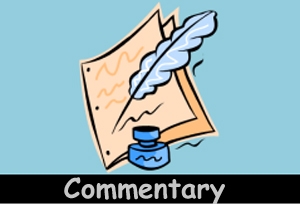
Editorial Desk :
Families of the victims of enforced disappearance decried the government’s report to the Working Group on Enforced Disappearance or Involuntary Disappearances. Families of 52 forcibly disappeared victims stood in front of the National Museum on Saturday demanding answers. For the first time in 26 years, the government had responded to the Human Rights Council’s working group, a United Nations body, submitting to them information about forcibly disappeared people.
The list of outstanding cases of enforced disappearance recorded with the organisation is at least 76 and the working group had rejected government explanations for 66 of them terming them insufficient. For preparing the report for the UN, law enforcers visited the families of the enforced disappearance victims to collect information. Some of the families said this was the first time they had been contacted by law enforcers in years.
On March 15, the United Nations called on the government to ensure that human rights defenders and the families of victims of enforced disappearance do not face any harassment from law enforcement agencies. Immediately cease reprisals against human rights defenders and relatives of forcibly disappeared persons for their activism and co-operation with international human rights bodies and UN mechanisms.
Several global news outlets and rights campaigners repeatedly said mass impunity and clean chit of law enforcers’ are the causes behind surging incidents of enforced disappearance. From January 1, 2009 to July 31, 2020, at least 572 people have been forcibly disappeared by security forces and law-enforcement agencies in Bangladesh. While some were eventually released, arrested, or discovered killed by security forces and law-enforcement agencies in so-called “crossfire”
encounters, the whereabouts of many of them remain unknown.
Rakkhi Bahini was formed under Bangabandhu’s government persuading Bangabandhu to think that there were terrorist forces to destabilise the government in new Bangladesh and to suppress terrorism secret killing was necessary. Thereafter RAB was set up with the same power of killing and enforced disappearance. The police and RAB were politicised as government’s anti- terrorism forces. The pro-people institutions were converted into anti-people institutions. Anybody interested to know the changed character of the government will find it easy to believe in its methods to stay in power. Our good people need to be saved from the vicious anti-people conspiracies both within and outside the country. The Democratic leadership has been decimated through killing and oppression.
As is known Bangladesh was the result of conspiracies while Bangabandhu was in jail in the West Pakistan. These conspiracies were at work to make Bangladesh a country of state terrorism appeared attractive to the beleaguered governments to terrorise the people into silence for continuing in power the communist way. The simple minded democratic political leadership fell in the trap of the leftist politics and process of dictatorship began in earnest. The goal of Bangladesh to be a people’s democratic country was foiled. The absence of strong democratic leadership has made Bangladesh a victim of conspiracies. The USA and other Western democracies took little or no interest in the affairs of Bangladesh aspiring to be a democracy. They left Bangladesh in the care of India that helped us separated from Pakistan under a larger plan. The country moved towards a country of state terrorism to be found in communist countries.
How to come out of anti-democracy and anti-people conspiracies is the major problem on the way to have a government of the people and for the people.

